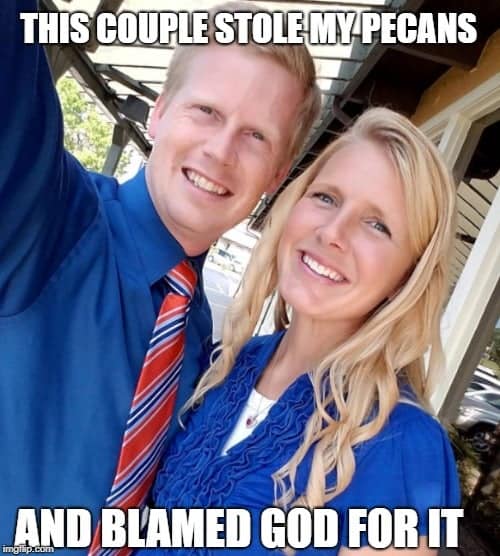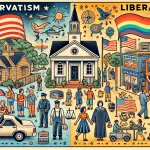When I left evangelicalism I thought I was leaving back-patting fence-drawing tribalism behind. How very naive I was.
In an Al Jazeera article published today, Usaid Siddiqui writes the following:
The Feb. 10 killing in Chapel Hill, North Carolina, of three Arab-American students, allegedly by atheist Craig Stephen Hicks has led some to compare militant atheism to Islamic militancy. Atheists are not happy with the comparison.
“The deluge of claims of equivalence between this crime and the Charlie Hebdo atrocity and the daily behavior of a group like ISIS [an acronym for another name for the Islamic State in Iraq and the Levant, or ISIL] has been astonishing to witness,” noted atheist author and writer Sam Harris said on a recent podcast. He denied any link between atheism and Hicks’ actions. Harris insists that the comparison was unwarranted and atheists’ crimes have nothing to do with their beliefs, not least because there exists “no atheist scripture or doctrine.” Hicks said he was a fan of New Atheists such as Harris and Cambridge University professor Richard Dawkins.
There are a lot of differences between the Chapel Hill killings and the Charlie Hebdo killings, but both demonstrate what hatred and demonization of “the other” can lead to. I would think we should all be able to admit this and condemn it—right? Wrong. I’m absolutely flummoxed by Sam Harris’s insistence that crimes committed by atheists by definition have nothing to do with their beliefs.
The “dictionary” atheist may be without doctrine or dogma, but this is not true for all atheists. I’ve fun into my share of atheists who believe that the world would be better off without religion, or that religious believers are dangerous and a menace to society (to be perfectly clear, I am not suggesting that everyone in the first group belongs to the second, they don’t). The antipathy toward religion that I often see in online atheist spaces suggests that for many people, atheism is more than simply lack of belief in a god or gods. This is where Harris’s argument falls apart.
Harris’s claim that crimes committed by atheists never have anything to do with their beliefs about religion is equally mystifying. To give only one example, Communist leaders in the Soviet Union worked for decades to eliminate religion because of their belief that religion was the “opiate of the masses.” Sure, you could argue that atheism was not the only (or primary) motivation behind Soviet oppression, but then you’d have to admit that the same is often true of terrorism carried out by Muslims.
After discussing the Communist Party of China, Siddiqui notes that:
New Atheists could rightly argue that CPC’s atheist rhetoric is a cover for maintaining the party’s grip on power and for buying influence within the ruling elite. Yet their failure to recognize similar external and political influences behind acts of terrorism committed by individual Muslims is hypocritical.
In other words, religious violence is very rarely only religious. Thus if we are to be fair and even, atheist violence need not be only atheistic. To put it simply, atheists who are quick to blame terrorism committed by Muslim individuals on Islam and just as quick to excuse atheism from any role in atrocities committed by atheists are using a glaring double standard.
Unfortunately, I have a lot of personal experience with these sorts of double standards. I grew up in an atmosphere where Christian atrocities were dismissed through ample use of the No True Scotsman fallacy. In fact, I believed that by definition, a Christian would not commit atrocities, and that if someone claiming to be Christian did so, they must not be truly Christian. It was a very handy way to excerpt my in-group from criticism while eagerly lobbing criticism at everyone outside of it.
I, for one, am not eager to repeat that.
And yet, I get to read no less prominent an atheist than Christopher Hitchens argue that Stalin was not actually an atheist. Really? Really? Do we have to do this? Is it so hard to admit that atheists can and do do bad things too?
On some level I think I understand what’s going on here. A number of prominent atheists frequently point to religious atrocities and human rights abuses in order to argue that religion is dangerous and that we should work toward its elimination. When Christians or other religious believers respond by pointing to atrocities committed by atheists like Stalin, these atheists can’t respond with “Yes, and we think that’s bad too,” because their argument is that lack of religion is superior to religion, and examples like Stalin make it clear that a belief in a deity is not a required condition for mass murder or oppression. And so they have to find a way to explain away Stalin’s atrocities as not truly a result of his atheism.
But then, as I noted, religious atrocities are rarely tied only to religion. It was socially marginalized women who tended to be burned as witches, and the European wars of religion were fed by long-running political tensions. Even the crusades were not motivated only by religion.
Perhaps I don’t feel the need to argue that atheism is never the motivation behind crimes or atrocities because I don’t see religion as the root cause of all that is wrong with our society or atheism as the solution to our societal ills. While I absolutely agree that there are religious beliefs that cause harm, and that the dogmatism inherent to some religious traditions can make changing these beliefs difficult if not impossible, I’ve spent enough time battling sexism completely divorced from religion—often alongside feminist religious compatriots—to conclude that the root of the world’s problems lays elsewhere.
Tribalism has been on my mind quite a bit lately. I’ve found facebook conversations surrounding the disastrous letter 47 Republican senators sent to Iran last week fascinating. I’ve seen exchanges where a progressive calls the letter treason, a conservative responds by pointing to Democrat politicians who have done similar things under Republican presidencies, and the progressive then responds by defending those Democrats’ actions. Is it so hard to say “Yes, and it was wrong when they did it too”? I feel like these sorts of exchanges are too often more about tribalism than anything else, and I’m growing rather sick of it.
I didn’t leave one tribe, with its demonization of other groups and tribes, ample use of the No True Scotsman fallacy, and insistence on valuing in-group loyalty above all else, to join another tribe doing the exact same thing.













